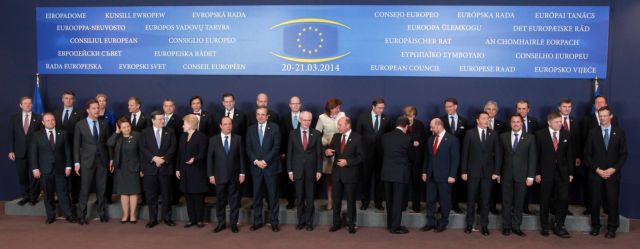By Panagiotis Ioakeimidis*
The New Year, 2019, may be the most critical in the history of European Unification – a nightmarish year of anxiety and travails, a make or break year of uprising or deeper unification.
For Greece in particular it will be crucial due to the upcoming general election.
The critical nature of 2019 for the European Union is determined firstly and above all by the European Parliament elections on 23-26 May and the result.
Aside from the existentially crucial European elections, 2019 will be the year of Brexit, if indeed it goes forward, and of Angela Merkel’s possible withdrawal from the political stage of Germany, and of Europe by extension.
Hence, the EU will find itself without a recognisable political leadership to which it had become accustomed for the last 13 years, with all the repercussions that may have in a period of heightened problems and challenges.
The apparent new strong European personality, French President Emmanuel Macron, sees that his position is weakened mainly domestically after the “yellow vests” uprising and the concessions that he was forced to make, which ineluctably affects his role in Europe. More generally, France is once again emerging as a major problem for Europe.
Brexit bombshell
With Brexit – if it go forward in the end – one will see for the first time since its founding a shrinking of the European Union with the withdrawal of a large member-state which played a significant role, though not always beneficial, in shaping thje EU, from its establishment as a common internal market and enlargement to common foreign policy and the Common Security and Defence Policy (CSDP). The only precedent is the withdrawal of Greenland as an area of Denmark under self-rule in 1984.
Brexit, albeit as it seems with the UK remaining very closely linked to the EU, has a negative impact on the Union. First of all it is a vote of no confidence in the future of the EU. This is despite the fact that the Union managed to maintain its unity and impose Brexit terms that will dissuade any other member-state from succumbing to such a temptation.
As Macron said, Brexit demonstrates that the Union is “fragile” and thus needs to be refounded.
Undoubtedly, May’s European Parliament Elections will be the pivotal act and nightmare of the new year, which will determine the course of European unification.
These will be the most critical European Parliament elections since their establishment in 1979, possibly an election of reversal.
By all appearances, the battles will be fought with an agenda of European issues, whereas all previous elections had a very limited European tone, and were geered much more to the national level.
The interest of EU citizens in the European Parliament has dwindled from 63 percent in 1979 to 42.8 percent in 2014.
A new, important European agenda, and the fact that since 2014 it functions in the framework of the leading candidate – or frontrunner – procedure (spitzenkandidaten) for Presidency of the European Union enhance the broader interest in these elections.
In May, 2019, two distinct conceptions of the future of Europe will clash.
The first is the far-right version of national-populism (but also the toxic ultra-left version).
Ultra-right national-populist forces (from Marine Lepen’s National Rally in France to Matteo Salvini’s Northern League in Italy, Viktor Orban’s Fidel in Hungary, and other forces in Germany, Poland, Denmark, Sweden, and elsewhere) are essentially pursuing the demolition of the European Union, though they do not yet say so overtly, and Europe’s return to the regime of unchecked nation-states and extreme nationalism.
It is the very model that is responsible for bloody civil wars in Europe, totalitarianism, xenophobia, racism and all other “demons of the past”.
In that pursuit, they entirely overlook the fact that stability and peace in Europe is largely due to the process of European unification, but also to the fact that contemporary problems and challenges (climate change, migration flows, terrorism, the technological revolution and so forth) cannot effectively be confronted within the limits of a nation-state.
Fears of Russian interference
There are fears thag Russia will “intervene” with the use of cyberspace to benefit national-populist forces. That is why the EU is taking measures. Certainly, the country to which one must pay particulat attention is France.
On the other hand, one has the pro-unification conception of democratic European forces, which understand the threat posed by national-populism, not only for unification but for European democracy itself.
Consequently, they must garner a strong majority in order to advance a programme of reforms and unifying measures that will ensure the viability and restore the legitimisation of the European system in the eyes of European citizens and societies.
Naturally, within the ranks of democratic, pro-unification forces there are both conservative and progressive approaches to deepening European unification.
The conservatives believe more or less that today’s model, which focuses on the unified internal market, should continue with certain minor additions.
The progressives believe that the current model must gradually evolve into a federal-type political union with strong supra-national distributive policies (social policy, convergence policy, etc.), a Common Security and Defence Policy, a common migration policy, a comprehensive economic and monetary (EMU) union, and strong supra-national central institutions and a scientific
I believe that the second approach is needed today, not for reasons of “pro-European ideology”, because that is mandated by problems and challenges, and mainly European society.
*P.K. Ioakeimidis is a professor emeritus of the University of Athens and a member of the academic council of FEPS.





